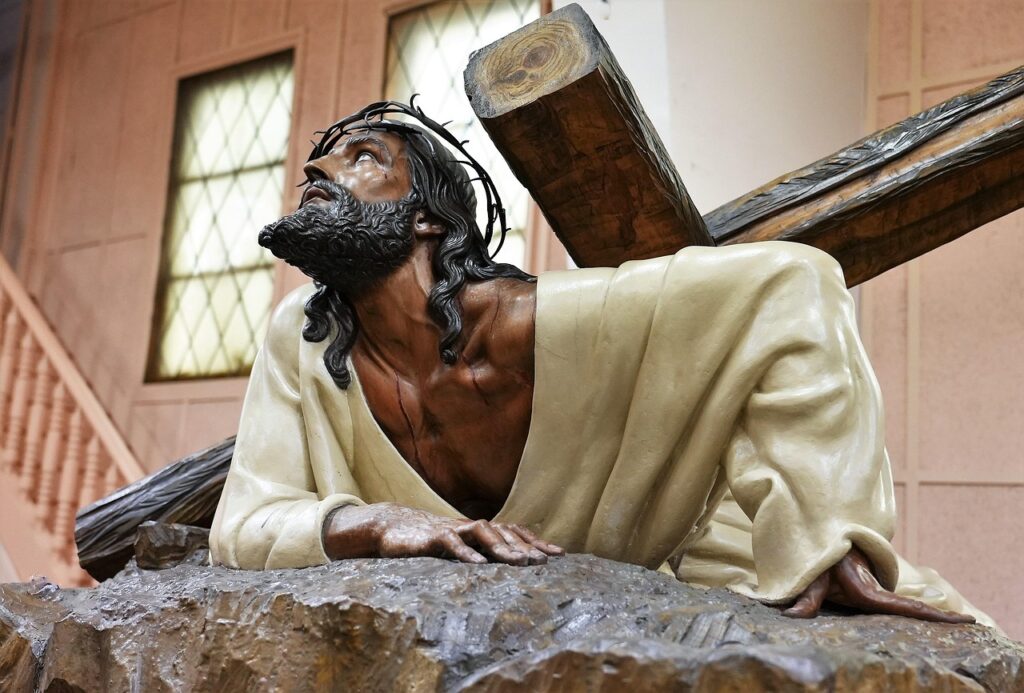
Skulls have long held symbolic significance in various cultures, including biblical texts. They often represent themes such as mortality, sin, and the consequences of human actions. In exploring their meaning within biblical contexts, we can gain deeper insights into the spiritual and moral lessons conveyed through these symbols.
Understanding the Symbolism of Skulls in the Bible
In the Bible, skulls are often associated with death and the fragility of human life. One of the most notable references is found in the story of Golgotha, the site of Jesus’ crucifixion, which translates to “Place of the Skull.” This location serves as a poignant reminder of the ultimate sacrifice made by Christ for humanity’s sins. The imagery of the skull evokes thoughts of mortality and the need for redemption, emphasizing the transient nature of human existence.
The symbolism of the skull can also extend to the idea of sin and its consequences. In biblical texts, sin is often depicted as leading to death, both physically and spiritually. The skull, therefore, can be seen as a representation of the results of a life lived apart from God’s will. This stark imagery serves to remind believers of the importance of repentance and the need for a relationship with God to attain eternal life.
Golgotha: The Place of the Skull

Golgotha, meaning “the place of the skull,” is a significant location in the New Testament. Found in Matthew 27:33, Mark 15:22, and John 19:17, Golgotha is where Jesus was crucified. The name evokes images not only of death but also of the profound sacrifice that takes place there. Jesus’ death on the cross represents the ultimate act of love and redemption, transforming the skull’s symbolism from one of mere death to a powerful representation of hope and salvation.
The crucifixion at Golgotha serves as a reminder that through death, new life can emerge. This paradox of life and death is central to Christian beliefs. The skull, in this context, symbolizes not just the end of life but also the beginning of a new covenant between God and humanity. It emphasizes that while death is inevitable, it is not the end; rather, it is a transition to eternal life for those who believe.
The Skull as a Reminder of Mortality
Throughout the Bible, the theme of mortality is prevalent. In Ecclesiastes 3:20, we are reminded that “all go to one place; all are from the dust, and to dust all return.” This passage emphasizes the transient nature of human life and the inevitability of death. The skull, as a symbol of mortality, serves as a stark reminder of our human condition. It prompts individuals to reflect on their lives, the choices they make, and their relationship with God.
The presence of skulls in biblical imagery encourages believers to live with intention and purpose. Understanding that life is finite can lead to a deeper appreciation of each moment and a greater desire to seek a meaningful connection with God. The skull thus becomes a symbol not just of death but of the urgency to live a life aligned with divine principles.
Skulls and Sin: The Consequences of Disobedience

In biblical texts, sin is often associated with death and destruction. Romans 6:23 states, “For the wages of sin is death.” This connection implies that sin leads to spiritual death, a separation from God. The skull, as a symbol of death, represents the dire consequences of living a life in opposition to God’s will. It serves as a visual warning of the dangers associated with sin and the importance of seeking forgiveness.
Moreover, the skull can symbolize the burden of sin that individuals carry. Just as a skull is a reminder of mortality, it also serves as a reminder of the weight of sin. This serves to encourage believers to seek redemption through confession and repentance, highlighting the transformative power of God’s grace. The skull, therefore, becomes a dual symbol—representing both the consequences of sin and the hope found in forgiveness.
Spiritual Warfare and the Skull
In the realm of spiritual warfare, the skull can also represent the battle between good and evil. Ephesians 6:12 reminds us that our struggle is not against flesh and blood but against spiritual forces of evil. The imagery of the skull can symbolize the enemy’s attempts to lead believers astray, causing spiritual death through sin and disobedience.
However, the skull also serves as a reminder of victory through Christ. Just as Jesus triumphed over death on the cross, believers are called to stand firm against the schemes of the enemy. The skull, therefore, is not just a symbol of death but also of victory over death through Christ’s resurrection. This duality emphasizes the importance of faith and reliance on God in overcoming the challenges of life.
The Skull and Resurrection in Christianity

In Christian theology, the resurrection is a pivotal event that transforms the meaning of death. The skull, often associated with mortality, takes on new significance in light of the resurrection. 1 Corinthians 15:55 declares, “O death, where is your victory? O death, where is your sting?” This passage underscores the belief that through Christ’s resurrection, death is not the end but a gateway to eternal life.
The skull, therefore, symbolizes the transition from death to life. It serves as a powerful reminder that while physical death is inevitable, spiritual life is available through faith in Jesus Christ. This hope in resurrection encourages believers to view death not with fear but with anticipation of the eternal life promised by God.
The Cultural Context of Skulls in Ancient Times
Understanding the cultural context of skulls in ancient biblical times adds depth to their symbolism. In many ancient cultures, including those surrounding the biblical narratives, skulls were often associated with ancestral worship and the idea of life after death. This context influences how skulls are perceived in biblical texts, further emphasizing their connection to mortality and the afterlife.
In addition, the practice of displaying skulls as trophies or symbols of victory in battle can be seen in various cultures. This cultural significance reinforces the idea of the skull as a representation of triumph over death. In the biblical narrative, the ultimate triumph is found in Christ’s resurrection, which transforms the skull from a symbol of defeat into one of victory.
Conclusion
The symbolism of skulls in biblical texts provides profound insights into themes of mortality, sin, and redemption. From their presence in the story of Golgotha to their representation of the consequences of sin, skulls serve as reminders of the transient nature of life and the importance of seeking a relationship with God. They symbolize not just death but also the hope found in Christ’s resurrection, encouraging believers to live with intention and purpose.
Ultimately, the skull challenges individuals to reflect on their lives, urging them to embrace the grace and forgiveness available through faith. As believers navigate their spiritual journeys, the skull serves as a powerful reminder of both the reality of mortality and the promise of eternal life.
FAQs
1. What does the term “Golgotha” mean?
Golgotha means “the place of the skull” and refers to the site of Jesus’ crucifixion. It symbolizes both death and the hope of resurrection.
2. How do skulls relate to the concept of sin in the Bible?
Skulls symbolize the consequences of sin, which leads to death and separation from God. They serve as a reminder of the importance of seeking forgiveness and redemption.
3. What is the significance of death in biblical texts?
Death in biblical texts emphasizes the transient nature of human life. It serves as a call to live purposefully and seek a relationship with God for eternal life.
4. How do skulls represent victory in spiritual warfare?
Skulls symbolize the battle between good and evil, and through Christ’s resurrection, they represent victory over death and the enemy’s schemes.
5. What message do skulls convey about resurrection?
Skulls symbolize the transition from death to life, emphasizing the Christian belief that through faith in Jesus, spiritual life is available beyond physical death.






